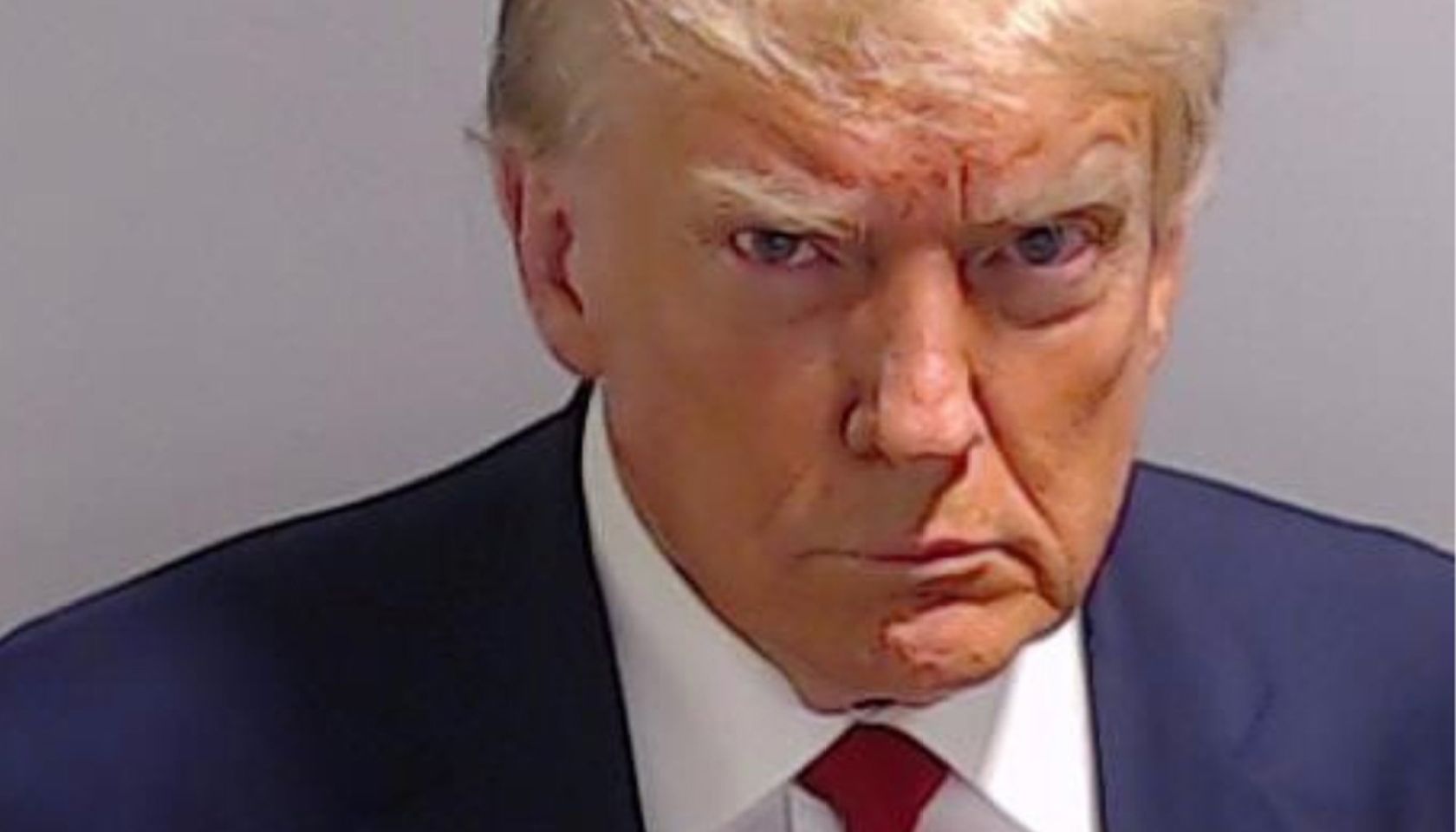Cornel West, A Prophet For President
Op-Ed: Cornel West, A Prophet For President
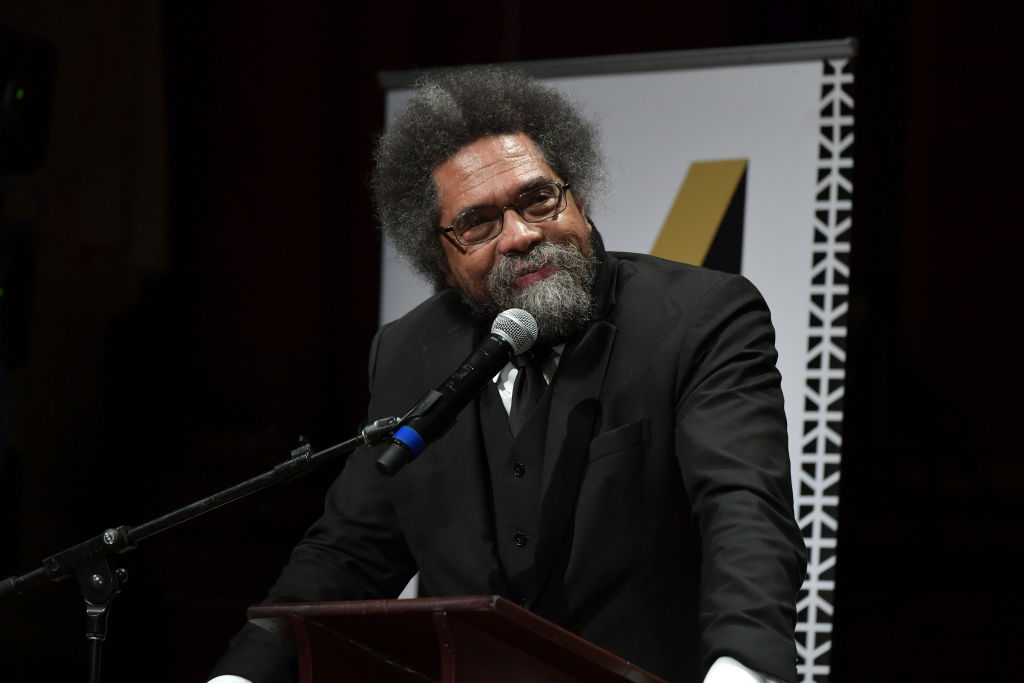
Source: Paul Marotta / Getty
Cornel West— one of the most influential public intellectuals in United States’ history—perhaps, second only to W.E.B. DuBois—has entered the race to seek the highest office in the land. West graduated from Harvard University in three years and was the first African American to receive a Ph.D. in Philosophy at Princeton University. For three decades, the New York Times bestselling author has been both a political gadfly and surrogate for a host of progressive presidential candidates. His analysis of politics, social issues and cultural phenomena represents a unique blend of Marxist thought and prophetic Christianity. He has written and edited some 40 books that range from the dense The Ethical Dimension of Marxist Thought to the erudite The American Evasion of Philosophy to the blockbuster Race Matters. As a philosopher, he has continued to have a lasting impact on the life of the mind, internationally. West will deliver the prestigious Gifford Lectures 2024 at the University of Edinburgh. He will be the first African American to do so.
Although he has taught at his alma maters, Yale, and the University of Paris, West has had an impact on popular culture. He has guest co-starred in popular TV shows such as 30 Rock and The Boondocks featured his likeness. The Cornel West Theory—a progressive hip-hop group—shares his moniker. In addition to recording songs with the likes of Prince, Andre 3000 and Jill Scott, he appeared in the two genre-defining Matrix films as “Councilor West” based on his persona. Simply put, Cornel West is an iconoclast with very few peers, save for Angela Davis, Noam Chomsky and Slavoj Zizek, “the world’s most dangerous philosopher” who ran for president in his native Slovenia. It could be said that Cornel West is the American Jean-Paul Sartre, a highly influential philosopher who has transcended the narrow confines of the academy and shaped popular culture.
Nevertheless, Cornel West 2024 has received significant pushback. I should say from the outset that I count Dr. West as a friend and guide. For many, like me, West is a political bellwether—a prophet with an unwavering critique of the American Empire. His unexpected entry into electoral politics is an act of desperation—West’s own word. Fascist elements have seized power in every level of government and desire to return the United States to its pre-1960s status quo.
Our nation has plunged into such dire straits that one of her harshest critics has sought to lead her. Having walked down the street with him in several cities, West is beloved by a broad range of folk—from unhoused persons to foreign diplomats. I have broken bread with him in an inner-city community center in St. Louis and we have lectured together in Istanbul, Turkey. More importantly, he has shown up when we called him to place his body on the line with us in the streets of Ferguson and when we confronted Nazis in Charlottesville. Equally, when I struggled to feed my family, he stepped in to help me out. With this said, in a manner, I pray, worthy of these dangerous times, that I shall attempt to reflect, critically, upon these overarching characterizations of West’s presidential ambitions.
Oddly enough, critiques of West’s candidacy have not questioned his qualifications or platform, the latter of which includes “fighting to end poverty, mass incarceration, ending wars and ecological collapse, guaranteeing housing, health care, education and living wages for all.” All these issues disproportionately affect Black folks in the United States. A focus on any or all of these would have invaluable impact on Black life. On social media and in private conversations, I have gleaned three overarching characterizations of West’s presidential run—ego, vanity, and selfishness.
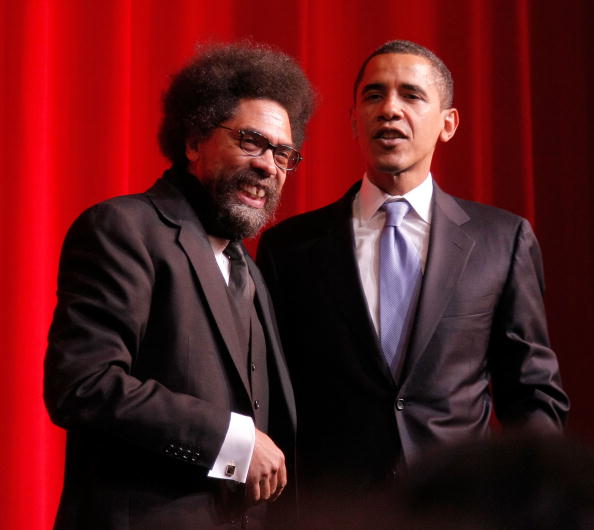
Cornel West and Democratic presidential candidate and Sen. Barack Obama greet supporters at a campaign fundraiser held at the Apollo Theater on November 29, 2007, in New York City. | Source: Jemal Countess / Getty
Ego
“This is about his ego,” barked one very perturbed public theologian during an hour-long rant. “All Presidential candidates have huge egos. It is part of the job description,” was my impish retort. To be sure, the desire to become the president of the most powerful and lethal empire in human history requires a tremendous ego. Cornel West is not unique in that characterization.
Accordingly, another example of West’s egomania was his feud with younger Black public intellectuals, Michael Eric Dyson, Melissa Harris-Perry, and Ta-Nehisi Coates. In kind, West’s off-color remarks about President Barack Obama furthered his critics’ point. On May 11th, 2011, the leftist online journal Truthdig.com published a fire and brimstone interview in which West called the first Black president a “Black mascot of Wall Street oligarchs and a Black puppet of corporate plutocrats.” In Black Prophetic Fire (2014), West characterized the Obama presidency as less than favorable, to say the least.
The age of Obama was predicated on three pillars: Wall Street crimes in the financial catastrophe of 2008; imperial crimes in the form of the USA PATRIOT act and National Defense Authorization Act, which gave the president sweeping and arbitrary power that resembles a police or neofascist state; and social crimes principally manifested in a criminal justice system that is in itself criminal (where torturers, wiretappers and Wall Street violators of the law go free yet poor criminals, such as drug offenders, go to prison). In other words, the Obama presidency has been primarily a Wall Street presidency, drone presidency and mass-surveillance presidency unwilling to concretely target the new Jim Crow, massive unemployment and other forms of poor and Black social misery.
Conversely, I believe, West—degrading word choice—distracted from the substance of his claim. The Obama presidency did not usher in a post-racist world, proved that representation was not enough to protect Black life and exposed the limits of neoliberalism. Elected during the 2008 economic downturn, Obama bailed out the banks while 6.4 million more families fell into poverty the following year, totaling 43.6 million. During a White House meeting in 2008, Obama told the gathered banker CEOs that he was “the only one standing between you and the pitchforks.” His policies protected the bankers while presenting young men as a social problem. According to the Bureau of Investigative Journalism, Obama’s two terms saw between 384 and 807 civilians killed in a total of 563 strikes, largely by drones, targeting Pakistan, Somalia and Yemen compared to 57 strikes under his predecessor. In Obama’s last year in office, the United States dropped 26,172 bombs in seven countries.
The Black Lives Matter movement was birthed under a Black president, Black attorney general and a Missouri Democratic governor in a Democratic stronghold. The Democratic Party was inept in the face of police killings. The Age of Obama described by West proved to be accurate, though unkind. To reduce a cogent political critique to matters of ego makes us all ignorant and arrogant. For some, West’s “Black mascot” and “Black puppet” comments were crude—which may be true—but his analysis, however, was keen.
Vanity
“He can’t win,” the public theologian bemoaned. This is, indeed, factual. The current two-party electoral system continues to obstruct any progressives or third parties. Ballot access laws—complex, state-specific filing requirements and deadlines—make becoming a presidential candidate a herculean task. After gathering enough petition signatures in all 50 states, the Republican and Democratic Parties often present legal challenges to third-party petitions and ballot applications.
Secondly, the amount of money needed to be a competitive presidential candidate is unseemly. Opensecrets.org reported that Trump-Pence 2020 raised $1.96 billion. Not far behind was the Biden-Harris campaign, which raised a combined $1.6 billion. Nearly $14.6 billion was spent on federal elections in 2020. These staggering numbers select out poor people and benefit the wealthy. It seems to me that the rage should be directed at a lopsided electoral system, not at any third-party candidate.
Now, to be sure, the Democratic Party has been the historical party of Black people since the Kennedy Administration because of its support for civil rights. Yet, the Democratic Party continues to be derelict in duties to the most vulnerable population in general and its most loyal voters—African Americans. With each federal election, there is short-lived debate in beauty and barber shops. It goes something like this: “We should just withhold our vote,” or “We should vote Republican because the Democratic Party ain’t doing nothing for us, anyway.” To end that in the post-civil rights era, Black candidates inside (Shirley Chisolm, Jessie Jackson and Al Sharpton) and outside (Cynthia McKinney/Rosa Clemente, Ron Daniels and now Cornel West).
However, third-party or insider insurgent campaigns are never simply about winning. They raised issues and policies absent from the platforms of the two parties. Most Black left-of-center candidates have, explicitly, named the conditions of the Black poor and offered solutions. They have tended to oppose U.S. military adventures, particularly in the global south.
West’s campaign wants to raise issues and offer policies that improve the quality-of-life of everyday people and end U.S. imperialist intervention. These issues are not on the table in the Democratic Party platform. West has taken up the mantle of raising these kinds of concerns with the hope of shaping the political discourse. Winning then is secondary to witnessing.
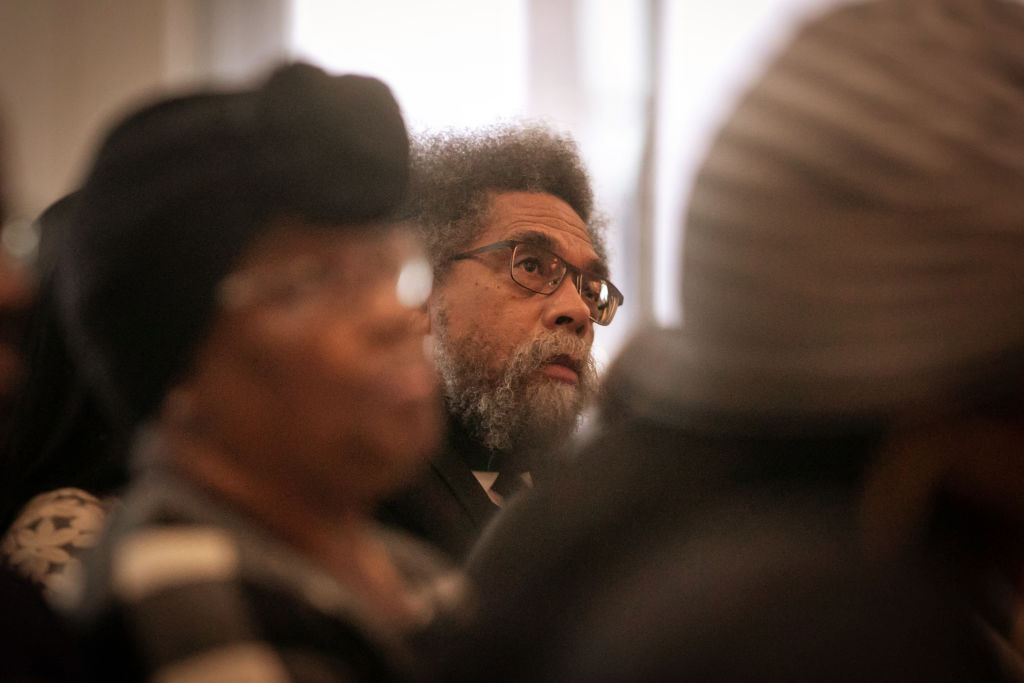
Cornell West along with community members and clergy across Los Angeles gather at Holman United Methodist Church to offer spiritual support to Mark Ridley-Thomas on the eve of his trial on Sunday, March 5, 2023, in Los Angeles. | Source: Jason Armond / Getty
Selfishness
“He is going to siphon off votes and hand it over to the (fascist) Republicans,” is the assertion made by many political observers. Democratic strategist James Carville called West “a menace, the threat to the continued constitutional order in the United States.” Former Senior Advisor to President Obama, David Axelrod, tweeted: “In 2016, the Green Party played an outsized role in tipping the election to Donald Trump. Now, with Cornel West as their likely nominee, they could easily do it again. Risky business”. The “spoiler” accusation has been thrown at third-party candidates for the last two decades. Ralph Nader and Jill Stein drew pointed ire for their “siphoning” votes from Democrats. This assessment is based on two assumptions: 1) votes belong exclusively to the major parties; and 2) more pointedly, most progressive voters who have voted for the Democrat.
The first fallacy is deeply undemocratic. Neither the Democratic nor Republican Party’s own democracy or our votes. Secondly, polling data of nonvoters and progressives yield a complicated analysis of the spoiler theory. In a roundup of the 2016 campaign season, electoral wunderkind Nate Silver noted that many Stein supporters would not have voted at all if they only had Clinton or Trump to choose from. “The breakdown might have been something like 35 percent Clinton, 10 percent Trump and 55 percent wouldn’t vote. That doesn’t wind up netting very many votes for HRC,” speculated Silver. The Pew Research Center’s study, “An examination of the 2016 electorate, based on validated voters,” revealed that the majority of nonvoters are Democrats or Democratic-leaning.
Among members of the panel who were categorized as nonvoters, 37% expressed a preference for Hillary Clinton, 30% for Donald Trump and 9% for Gary Johnson or Jill Stein; 14% preferred another candidate or declined to express a preference. Party affiliation among nonvoters skewed even more Democratic than did candidate preferences. Democrats and Democratic-leaning independents made up a 55% majority of nonvoters;
Moreover, recent polling does not fare well for Democrats. NBC News poll showed 70% of all Americans believe Biden should not run for a second term—including 51% of Democrats. A NewsNation/DDHQ poll found 49% percent of respondents would consider voting for a third-party candidate in 2024 if Trump and Biden were their parties’ nominees. So then contrary to the spoiler accusation, Democratic failure to capture the White House, will be their own fault because they ran a highly unfavorable candidate and could not convince most of their nonvoters to turn out.
Though both parties share in their bend toward privatization, militarism and ignoring the poor, there are distinctions between the two that have a real impact on people’s lives. I do not share the position that there is no difference between the Republicans and Democrats. Roe v. Wade would still be the law of the land if Hillary Clinton had won the 2016 election because she would have nominated pro-choice Supreme Court judges. As noted above, third-party candidates are not to blame for that reality. Democrats must make a compelling argument to the electorate that goes beyond fear tactics.
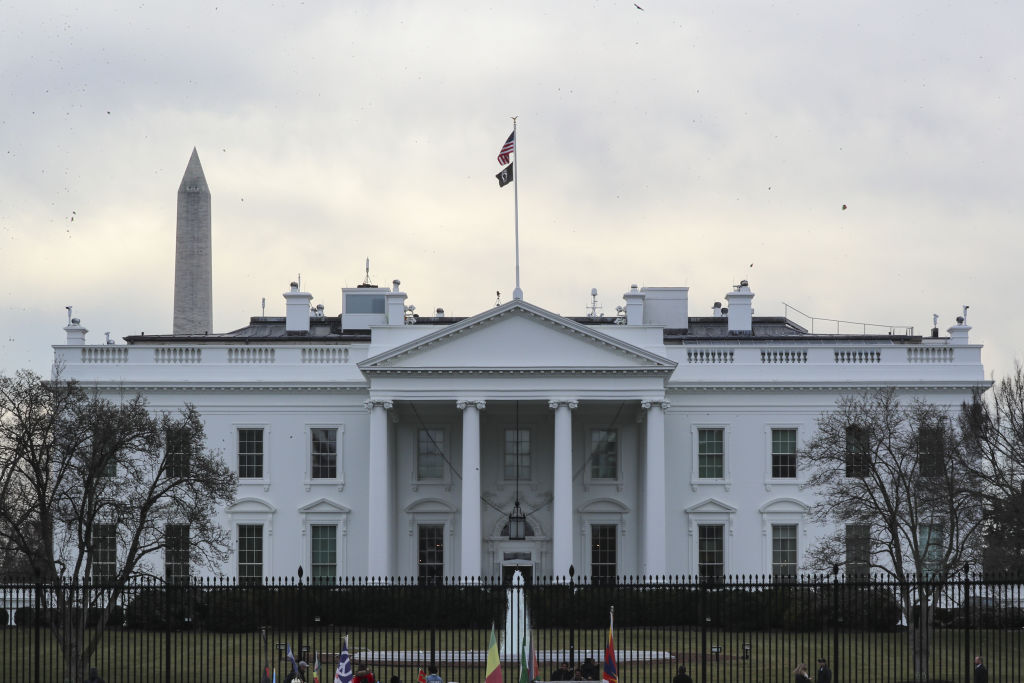
Source: Anadolu Agency / Getty
A path to the White House
Finally, electoral politics are filled with swift transitions. Poised to raise $70 billion by next year, the centrist No Labels Party is courting maverick Sen. Joe Manchin (D-WV), which has adverse effects on the Democratic and Republican establishment. Surprisingly, Robert F. Kennedy, Jr. (D) received 15% support among a sample of the Democratic Party’s primary in a Harvard CAPS/Harris poll. His bombastic personality and star power make him a prime candidate for an independent run after a Democratic primary that he is surely going to lose. Donald Trump’s legal troubles could shave off just enough confidence that he loses a tightly contested Republican primary, and he will not go quietly into the night. So then, if No Labels Party, Robert F. Kennedy, Jr. and Donald Trump run independent candidacies, splintering the Democratic and Republican Parties, all bets are off. The popular vote and Electoral College could be divided in at least four ways. The basic challenge for West and the Green Party manifold: 1) gain ballot access; 2) create a comprehensive ground game; 3) raise enough money to be effective; and 4) build out a political discourse that will shape public conversations. In this scenario, there is a path to the White House for Cornel West.
Noted organizer, musician, and theologian, Rev. Osagyefo Sekou is a pastor of Valley and Mountain Fellowship United Methodist Church in Seattle, Washington. Rev. Sekou is a Religious Studies Phd candidate at Goldsmiths, University of London.
SEE ALSO:
Cornel West Announces Presidential Campaign Seeking 3rd Party’s Nomination
College Dropout Candace Owens Gets Owned By Dr. Cornel West Debating Slavery
